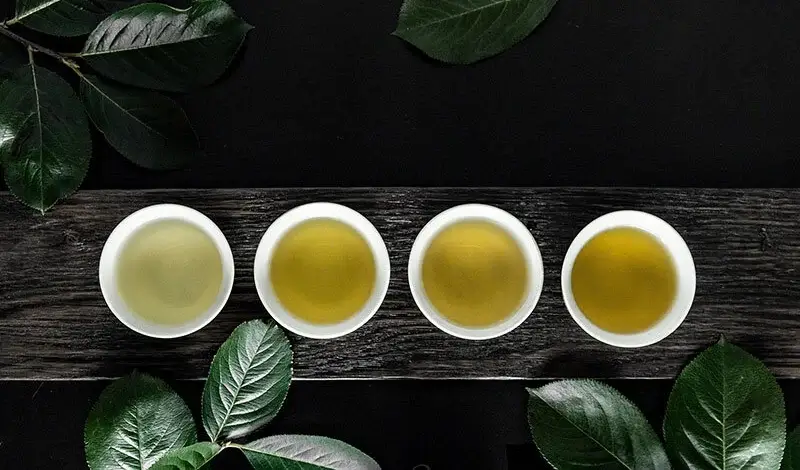Table of Contents
Organic green tea has become a popular choice among tea drinkers in the UK. With growing awareness of health and environmental issues, many people are curious about the differences between organic and conventional green tea. In this blog, we’ll explore what sets organic green tea apart from its conventional counterpart. We’ll help you understand which one might be the better choice for you.
Understanding Green Tea
Green tea is one of the most popular beverages worldwide, known for its refreshing taste and numerous health benefits. Originating from China and Japan, green tea is made from the leaves of the Camellia sinensis plant. The minimal processing helps preserve its rich antioxidants, which contribute to its many health-promoting properties. Whether you prefer organic green tea or conventional, both types share these basic qualities.
What is Organic Green Tea?
Organic green tea is grown without the use of synthetic pesticides, fertilisers, or genetically modified organisms (GMOs). To be labelled as organic, the tea must meet strict standards set by certification bodies like the Soil Association in the UK. Farmers use natural methods to manage pests and fertilise the soil, which helps maintain the ecosystem. Organic farming practices aim to produce green tea that is not only good for your health but also better for the environment.
What is Conventional Green Tea?
Conventional green tea is grown using standard agricultural methods, which often involve synthetic chemicals and fertilisers. These methods are designed to maximise yield and reduce costs, making conventional green tea more affordable. However, the use of pesticides and chemicals can leave residues on the tea leaves. While these levels are generally considered safe by regulatory standards, some consumers prefer to avoid them, opting for organic green tea instead.
Key Differences Between Organic and Conventional Green Tea

Farming Practices
The most significant difference between organic green tea and conventional green tea lies in how they are grown. Organic green tea is cultivated using natural methods, avoiding harmful chemicals. In contrast, conventional farming relies on synthetic inputs to enhance growth and protect the plants.
Pesticides and Chemicals
Organic green tea is free from synthetic pesticides and chemicals, making it a cleaner option. Conventional green tea may contain trace amounts of pesticide residues, though these are usually within safe limits. For those concerned about chemical intake, organic tea offers peace of mind.
Nutritional Content
There is ongoing debate about whether organic tea contains higher levels of nutrients than conventional green tea. Some studies suggest that organic tea may have more antioxidants due to the absence of chemical stressors. However, both types are generally rich in beneficial compounds.
Taste and Quality
Many tea enthusiasts believe that organic green tea has a purer, more natural taste compared to conventional green tea. The absence of chemicals allows the true flavour of the tea leaves to shine through. However, taste can be subjective, and some may not notice a significant difference.
Environmental Impact
Organic farming is designed to be sustainable, promoting biodiversity and reducing pollution. Conventional farming, while more efficient, can contribute to environmental degradation through the use of synthetic chemicals. Choosing organic tea supports environmentally friendly practices.
Health Implications
When it comes to health, organic green tea and conventional green tea both offer benefits, but there are some distinctions. Organic green tea eliminates the risk of consuming pesticide residues, which can be important for health-conscious individuals. Additionally, the natural farming methods used in organic production may result in a tea that is closer to its original, unaltered state. On the other hand, conventional green tea still provides a good source of antioxidants and other health benefits, but with a slight risk of chemical exposure.
Cost and Accessibility
Organic green tea is typically more expensive than conventional green tea. This is due to the labour-intensive farming practices and lower yields associated with organic production. However, for many, the price difference is justified by the benefits of choosing organic. In the UK, organic green tea is widely available in supermarkets, health food stores, and online, making it accessible to those who prefer it.
Making the Choice: Which is Better for You?
Deciding between organic green tea and conventional green tea depends on your priorities. If you value natural farming practices, environmental sustainability, and reducing chemical intake, organic tea may be the better choice. However, if cost and availability are more important, conventional green tea offers a more budget-friendly option without sacrificing too much in terms of health benefits. Ultimately, the best choice is the one that aligns with your values and lifestyle. As it’s the best choice to weight loss.
Conclusion
Both organic green tea and conventional green tea have their merits. Organic green tea offers a cleaner, more environmentally friendly option, while conventional green tea provides an affordable way to enjoy the health benefits of this ancient beverage. By understanding the differences, you can make an informed decision that suits your needs. Whether you choose organic green tea or conventional, both can be enjoyed as part of a healthy, balanced diet.





